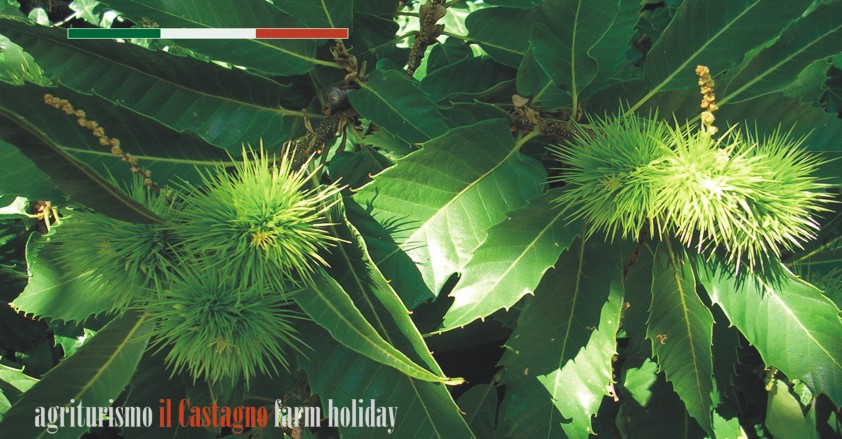|
|
|
|
Site Map F2 presents: agriturismo "Il Castagno" farm holiday CAMPANIA agerola SORRENTO amalfi POSITANO napoli POMPEI capri RAVELLO
AGRITURISMO IL CASTAGNO di Fusco Isabella via radicosa 39 c 80051 Agerola (Na) Italy tel/fax 0039 0818025164 p.iva 07044911217 cf: FSCSLL73M69C129D REA: NA 857529 pec: ilcastagno@arubapec.it CUSR 15063003EXT0091 CIN IT063003B5J6G9UWBC PRIVACY POLICY |
|
 |
|
|
RECENSITO DAL GAMBERO ROZZO -i migliori 400 agriturismi d'Italia- REWIEVED ON GAMBERO ROZZO -the best 400 farm houses of Italy- RECOMMANDE' DANS GAMBERO ROZZO -Les meilleurs 400 gites ruraux d’Italie-
|
|
|
Agriturismo ad Amalfi. Benvenuti nel sito de Il Castagno agriturismo ad Amalfi (Agerola). Campania was primitively lived by the Ausonis (Aurunci) and by the Opicis, then, toward the VIII sec. to.C., the coasts were colonized by the Greek, that Cumas founded, and, in the You sec., the inside zones were busy from the Etruschis, that constituted a league of twelve cities with to head Capua. Demolished above all the dominion etrusco for work of Cuma (524 and 474 to.C.), in the second halves the V sec. to.C. it began the invasion, from the mountains toward the sea, of the Sannitis. Capua (440 around) and Cuma (425 around) were conquered and the invaders imposed their language to the native population, mixing himself/herself/itself partly with it. From such fusion it derived the new population of the lowland bell, that of the Oscis, with a physiognomy well separate from that of the Sannitis, so much that, when the people in a second wave they moved from their mountains to invade Campania, Capua it turned him for helps to Rome (343 to.C.). From here the origin of the three wars sannitiche (343-290 to.C.), whose result was the occupation of the whole region is inside is coastal from the Romans, that founded you quite a lot colonies (Cales, Suessa, Literno, Pozzuoli, etc.) and they introduced him within their hegemony. Except the serious defection of Capua and some smaller cities, that you/they were allied to Annibale in the second war punica and the share, even though limited, to the revolt of the italic partners, Campania welcomed the new order created from Rome and, had the citizen of it, it suffered a depth process of romanizzazione, preserving however Greek characters in some centers as Naples and Pompeii. For his/her natural beauties, for the meekness of the climate and the fertility of the ground it was considered as the region of the peninsula richest in good of the fortune (Campania felix): its coasts offered enchanting places for the vacation of the rich gentlemen; the ground furnished wheat and mile of great output that in the Lazio and it produced besides in abundance oil, fruit, vegetables, dainty wines as the falerno, and gnawed that served for the preparation of the famous perfumes of Capua. After having made part with the Lazio, in the division augustea, of the first region of Italy, Campania became under Diocleziano a province to itself, also maintaining its unity under the Ostrogotis and the Byzantines. Submitted by Giustiniano to the civil authority of a judge and soldier of a duke, coll'occupazione longobarda of Benevento (570 around) saw broken his/her own territorial unity: constituted him the dukedom, then independent principality (758), of Benevento, this inclusive ones at first Capua and Salerno, that in the 840 they became entirely also centers of principalities autonomous longobardi. To the empire they remained, practically only of name, Naples and the central coastal region; more to south, Amalfi, enriched him with the maritime trafficis developed a great deal by a numerous fleet, he/she succeeded in the seccs. IX - XI to order him in flourishing independent dukedom both from the Byzantines and from the Longobardis. In 1030 the Norman ones had in feud from the duke of Naples the county of Aversa, them first possession in southern Italy that, in the one hundred following years, it ended up entirely falling under the Norman dominion: after the definitive conquest in Naples in 1139, Campania, in the seccs. XII and XIII, were inclusive therefore in the kingdom of Sicily and subject to the monarchy Norman-sveva; come then in possession of the Angioinis and the Aragonese ones, it actually suffered the oppressive dominion of it to the beginning of the XVI sec. |
|





